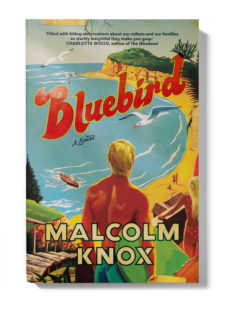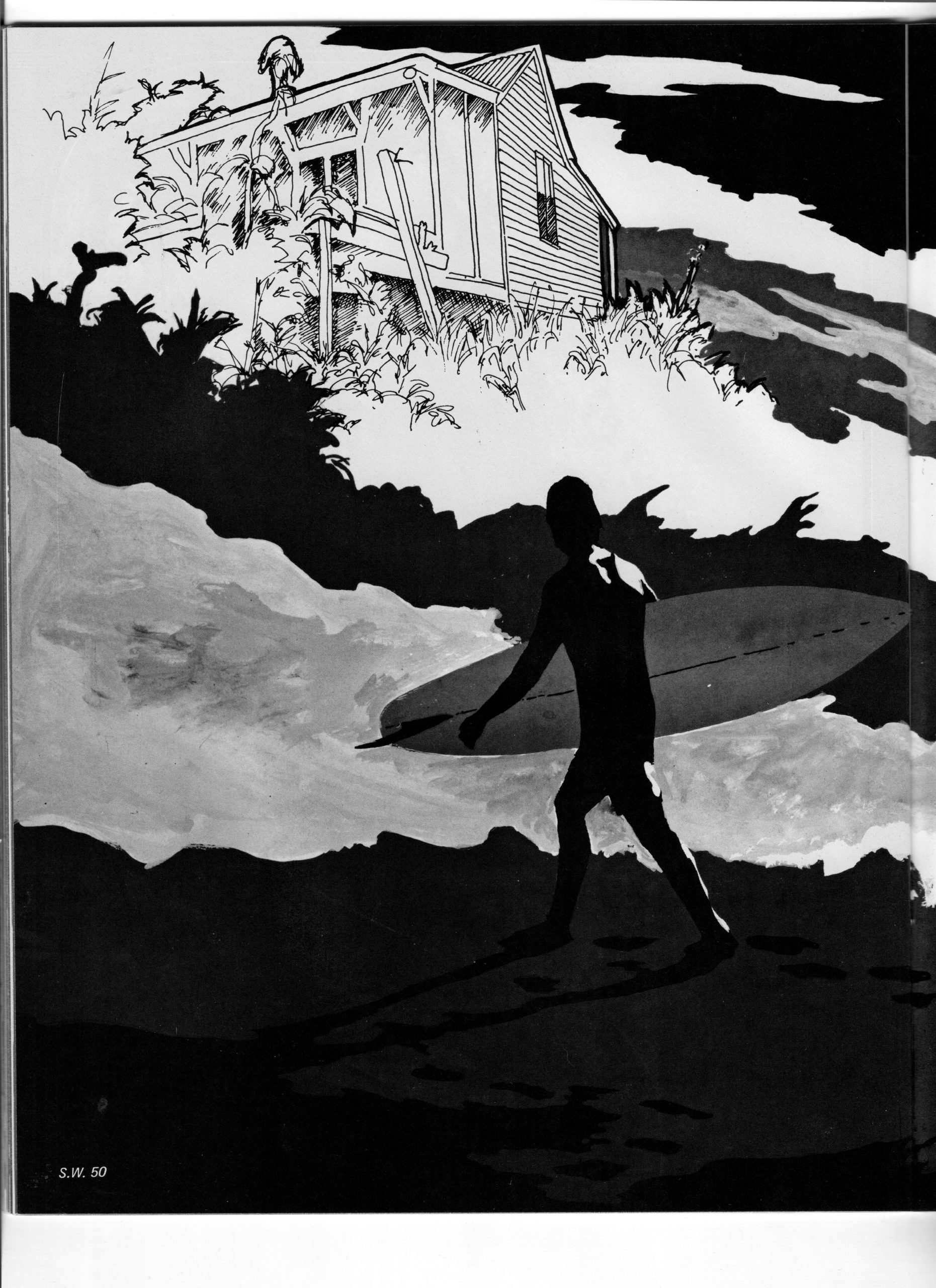AN OLD WAY OF LIFE SLIDES INTO THE SEA

The central character of Malcolm Knox’s latest novel, Bluebird is a house. The Lodge sits on the cliff above Bluebird Beach, the last original beach house in town; Besser block and fibro, inch by inch sliding into the sea, crowded out by luxury concrete and glass bunkers. The Lodge is owned by one of the last Bluebird originals, Gordon Grimes and the book charts his crusade to both save The Lodge and save the Bluebird he grew up in.
Bluebird is a generational story, set against the backdrop of an Australian coastline that’s in many places unrecognisable from just a generation ago. A roaring economy and the fetishising of coastal living have seen real estate prices spike and cafés replace mum and dad surf stores. The gentrification of once-grubby beach burbs has seen their original inhabitants slowly squeezed out. One by one they give up on the idea and simply move up the coast. The premise of the book is the same one faced by a couple of generations now of Australian surfers: what happens when you can’t afford to live at the beach you grew up on?
“You have beaches and beachside communities rapidly being overtaken by money,” offers Malcolm Knox. “You look at the houses and think, what happened? How can anybody afford to live here? They’re owned by people who have five houses, that’s how. But yet when you’re in the water there are a lot of ordinary people still there – lots of tradies, unemployed people and the voices you hear, especially among experienced surfers are real Australian working class voices, and older Australia voices. That culture clash between the old and the new is really fascinating.”
The idea for the book has been kicking around in Malcolm’s head ever since he moved to Sydney’s Freshwater over a decade ago, crystallising as he’d walk past an old house that would become The Lodge. “It’s down the south end of Freshwater Beach. It’s been done up now but for the first few years when I lived here it was pretty derelict. I was fascinated by the house. Who lived there?” Knox also gave some other Freshwater locals cameos in the book. The “five-time state champ” Gordon surfs with bears a resemblance to a certain women’s “seven-time world champ” who lives down the road from him in Freshy.
Knox has found surfing with Layne Beachley – surfing with anyone on the northern beaches – doesn’t really offer an escape from the pressures of daily life. “You gear up for battle. That doesn’t mean that it’s unpleasant or aggressive, but the undercurrent of it is always you’re competing for a scarce resource with a number of people, a lot of whom are more competitive than you, younger than you, fitter than you and surf better than you. So I don’t find surfing relaxing. I love the relaxed feeling afterwards, but I’m not in a relaxed state of mind when I’m in the surf. I’m just sitting there thinking, is that one coming to me? Can I get over there to catch it? Hey, what’s that bloke doing!”
That pressure doesn’t stop these days at the high tide line, and Bluebird skewers the romantic idyll of life in a beachside town as a sanctuary. “The reality of coastal life is that it’s a shrinking margin with more people being squeezed into it under competitive pressure against each other. It’s a higher stress place and not the kind of cliché dream. It’s not the idea of the beach that you’ve been sold.”
This social shift is the backdrop for Bluebird – a “sandwich generation” getting the boot from the coast, cutting family ties that go back decades. “Where do these people live?” Asks Knox of the recently-booted. “They clearly can’t afford to live in this place now so they’re either travelling to get there, or they still live there and are hanging on like a few of my characters, living with their mums There’s this drama unfolding before you, that the people really are clinging by their fingernails to a way of life and to this place that is the most important thing in the world to them… but there’s always a sense of them fighting a losing battle.”
Knox sets up an escape for Gordon Grimes, a town up north referred to only as “Up North”. While Gordon is hanging onto Bluebird, broke and miserable, his son Ben can’t leave soon enough. He reflects his generation. They aren’t as hung up about staunchly clinging to their tribal patch. They can’t buy in, they can barely rent and it’s liberated them. Their response to not being able to afford to live on their home beach has simply been to buy a van and make the whole coast their home.
